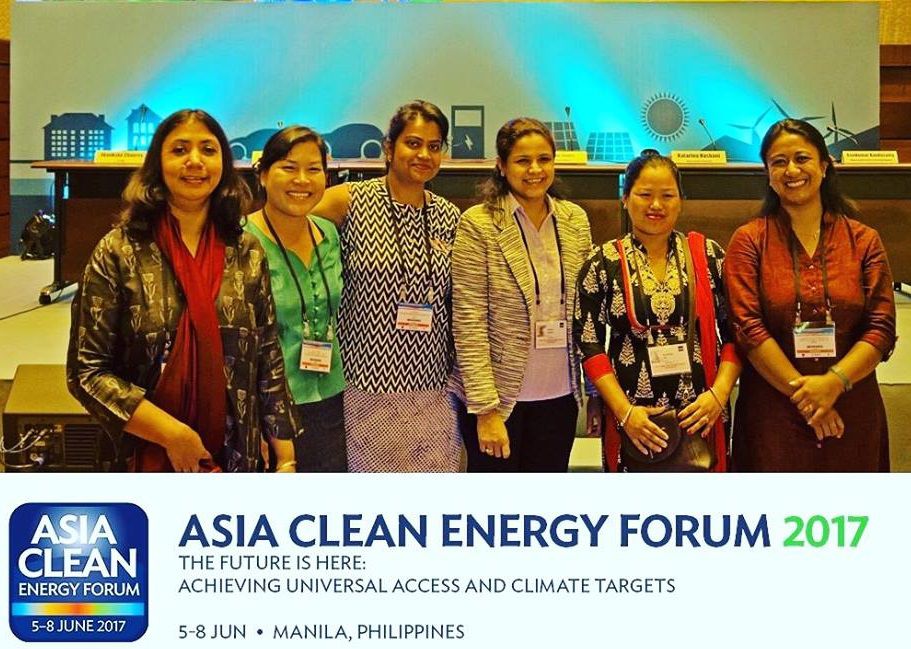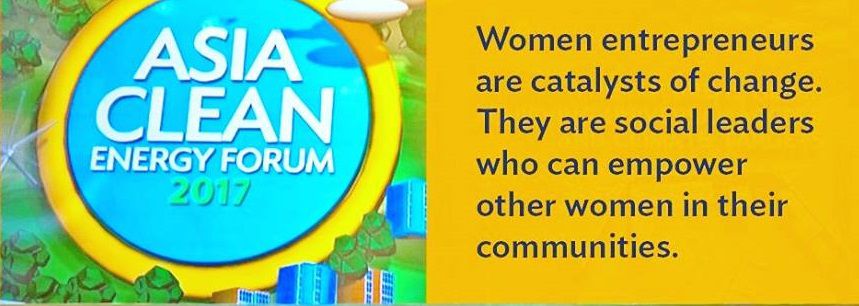Four voices from the grassroots energized Asia Clean Energy Forum participants who attended the session co-chaired by Soma Dutta of ENERGIA and MK Balaji of USAID-PFAN Asia program.
This session, a part of the Increasing Energy Access thematic track, provided an opportunity for ACEF participants to hear from the entrepreneurs who are working to bring energy access to the last mile. The four female entrepreneurs presenting – Kamala Dhakal, Akansha Singh, Naly Lang and Kalphana Rai – had been selected by a special jury based on innovative business plans.
The four stories gave insights into the personal paths to their businesses as well as into their business models. The presentations highlighted the commitment of these entrepreneurs to establishing a sustainable market, and creativity to develop innovative business models and new ways to involve and engage local communities.
Soma Dutta had pointed out in a pre-ACEF interview that, “These people are fighting tough battles to bring energy access to areas where large-scale infrastructure is unlikely to ever extend. In doing so, they are not only doing a great service by expanding energy access. They are also serving their communities, countries and economies by enhancing local employment generation, helping governments achieve development targets, increasing income at local level, to name but a few aspects.”
The audience expressed their appreciation of the achievements of these entrepreneurs, and the efforts of PFAN and ENERGIA in supporting these and many more entrepreneurs. There was recognition of the need to scale up these efforts by increasing the numbers of clean energy entrepreneurs at the last mile, by ensuring continued support to the experienced entrepreneurs so that they can operate at an optimal scale, and by mentoring new entrepreneurs.
As Katarina Hasbani of the Alliance for Rural Electrification noted in a subsequent session: “Energy does not create revenues. It is the individuals, businesses and communities who do.”












Follow us on: